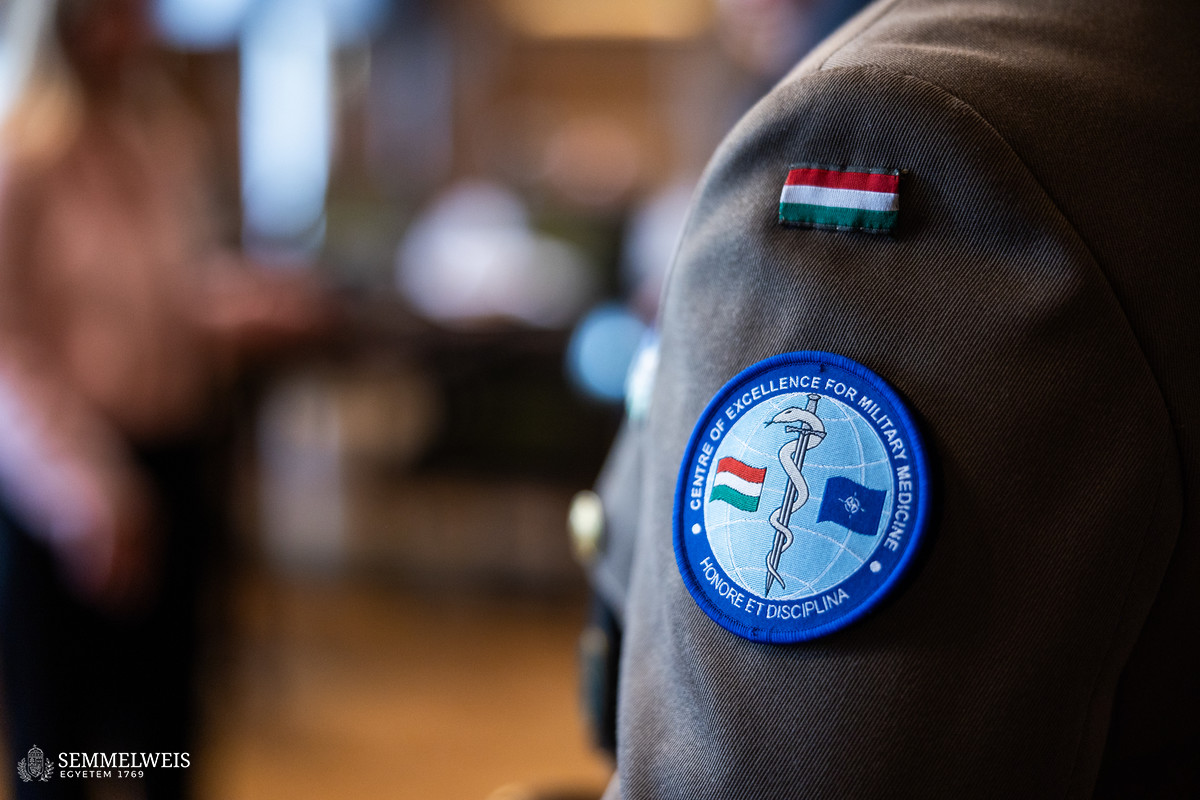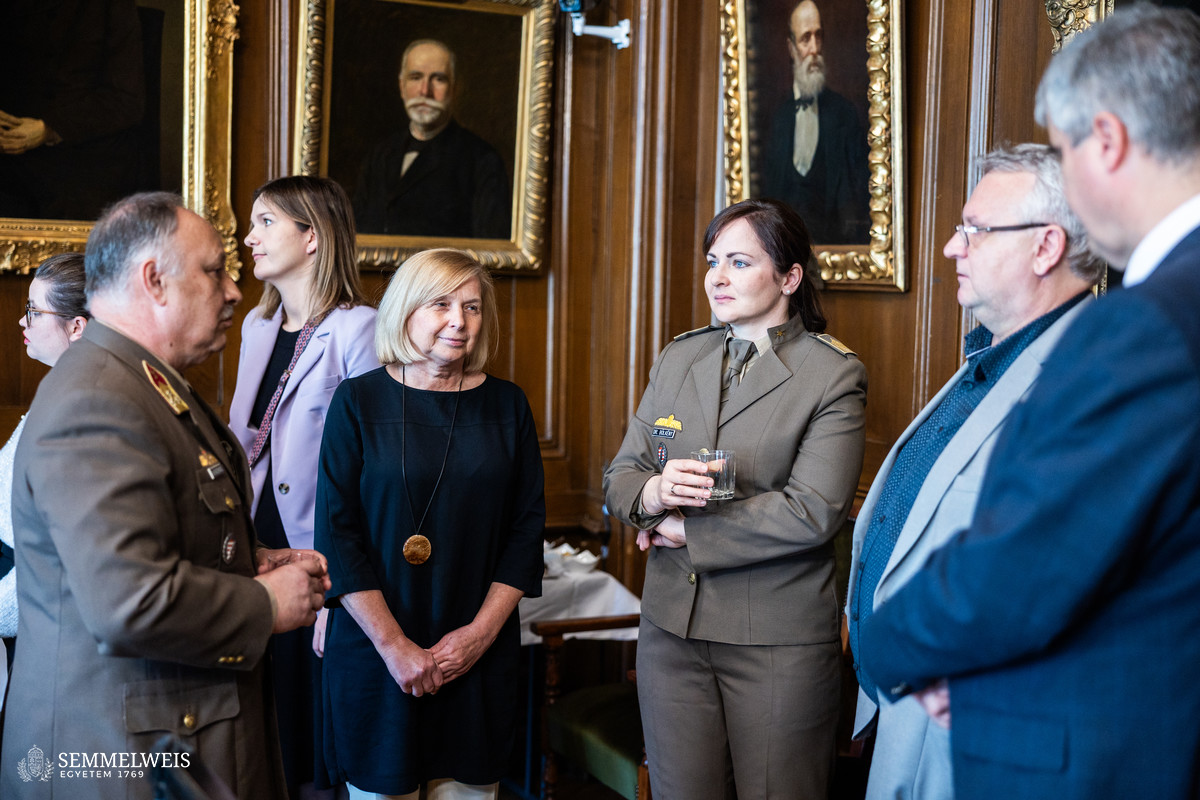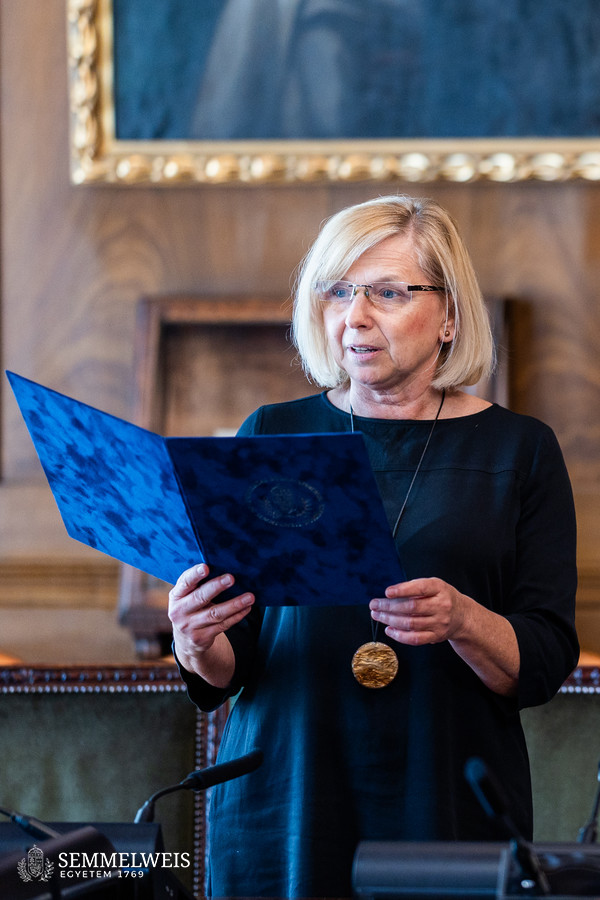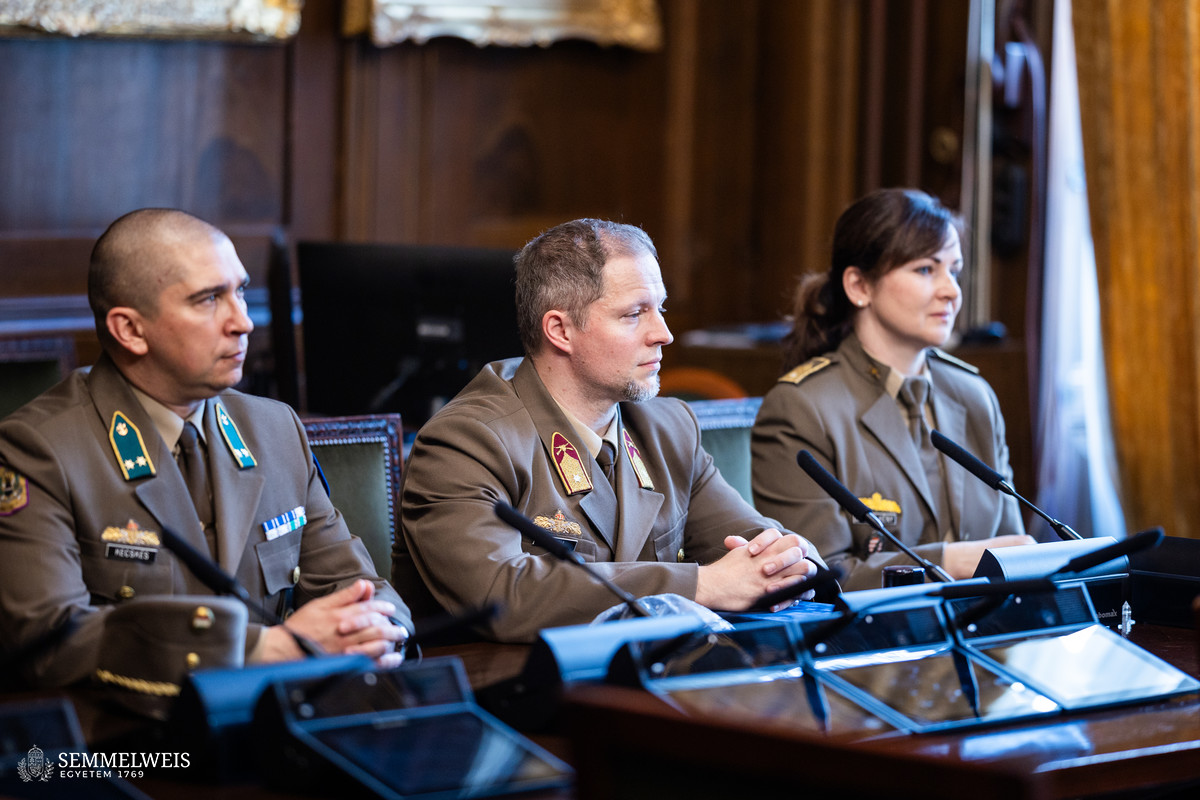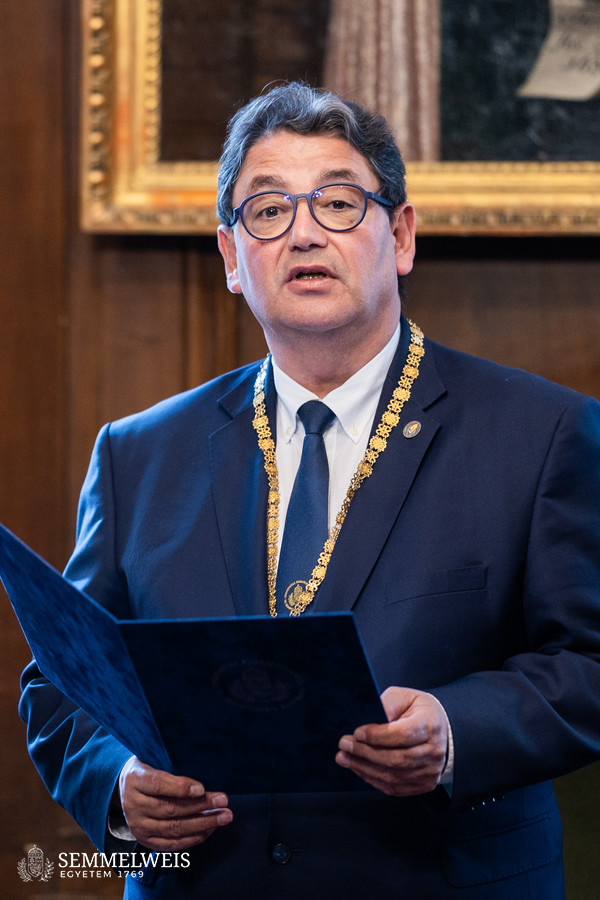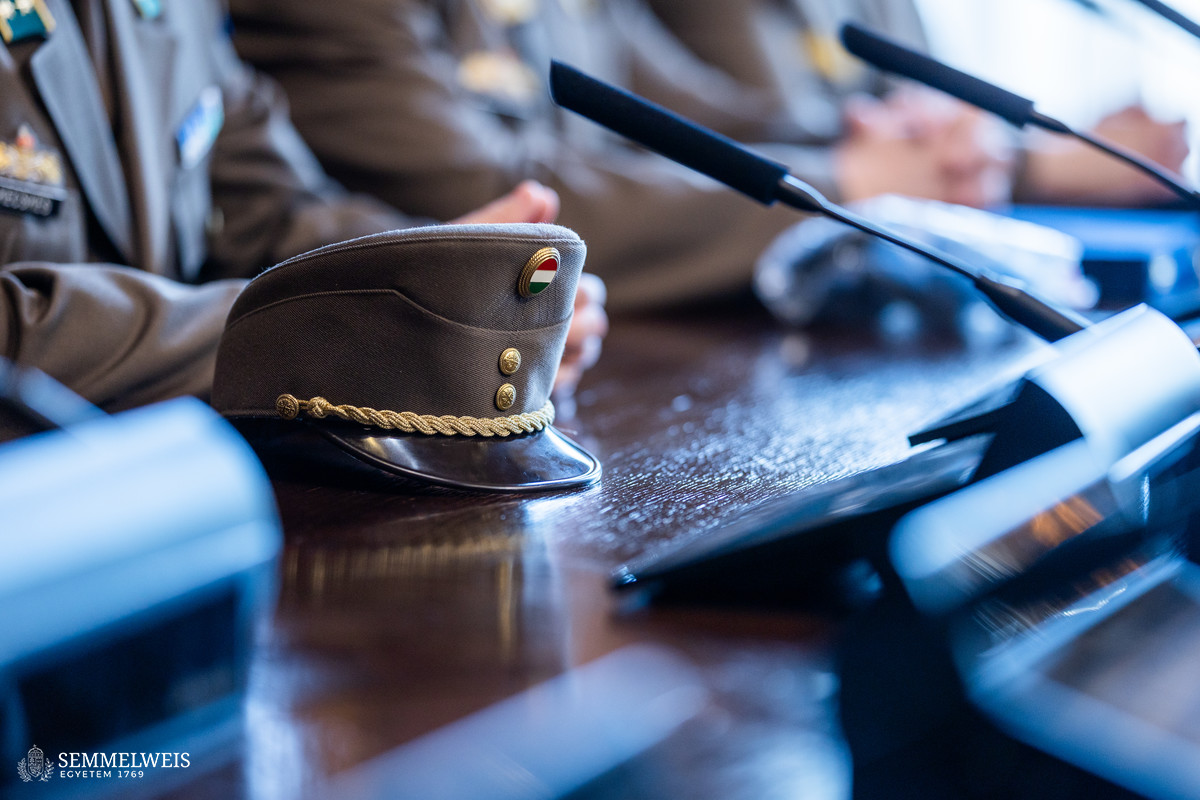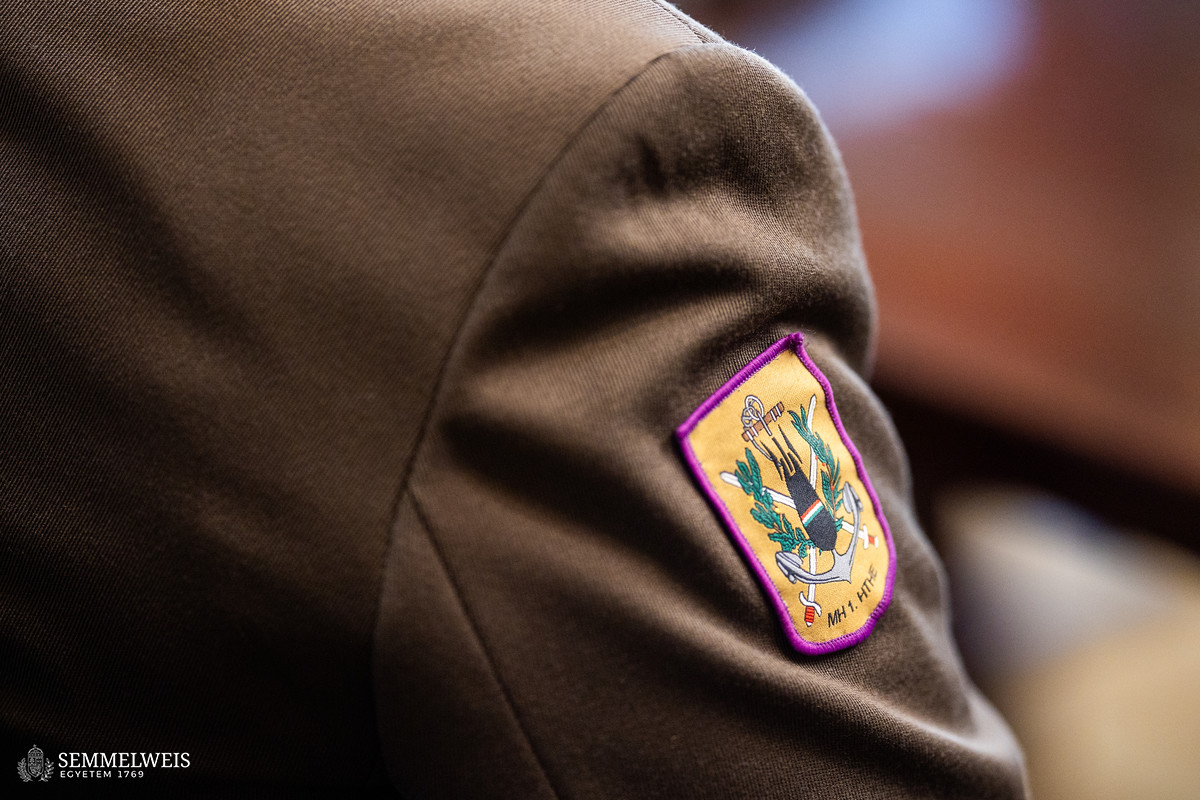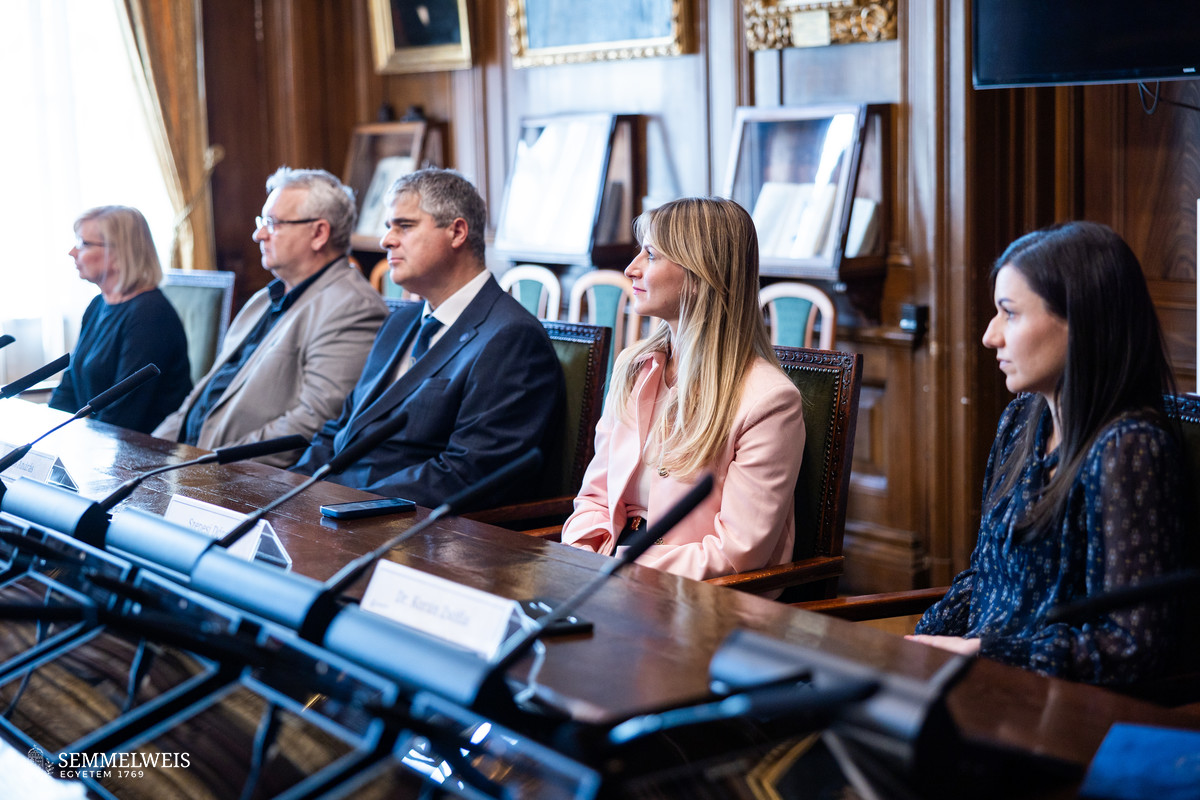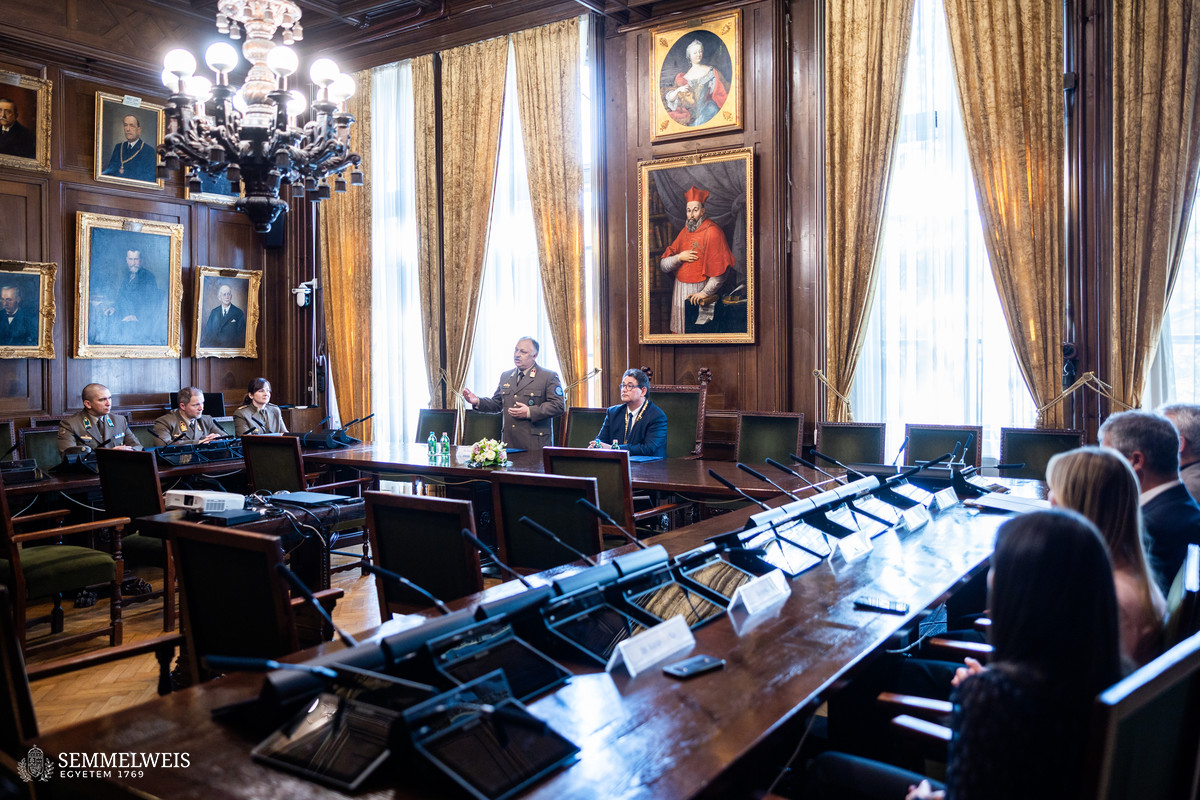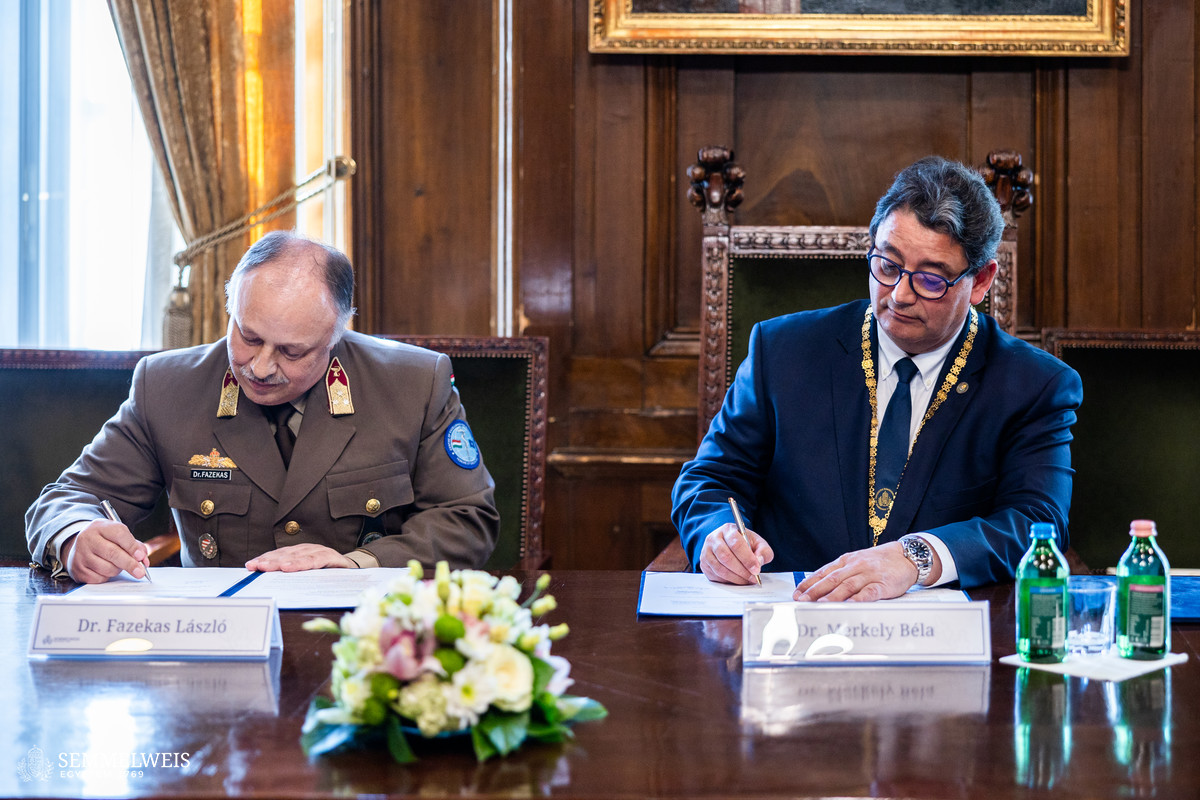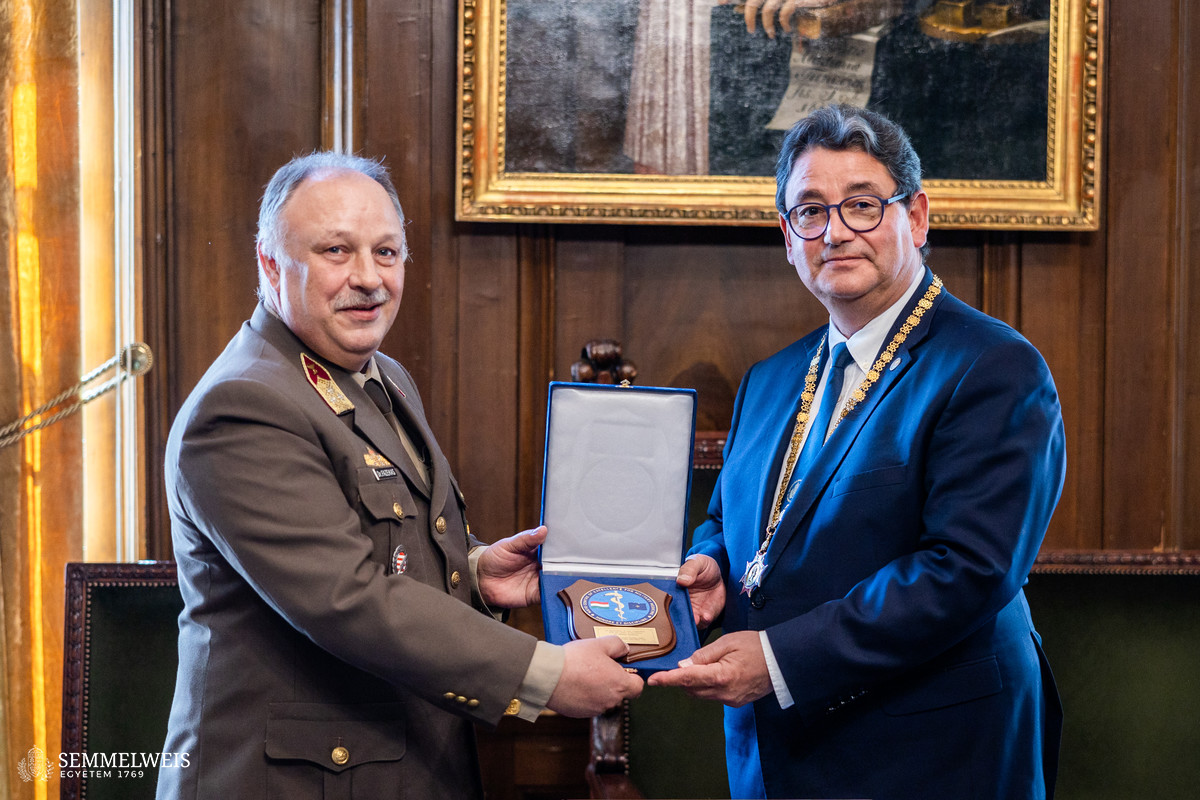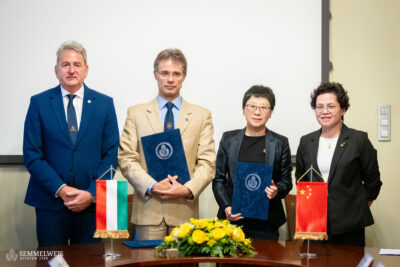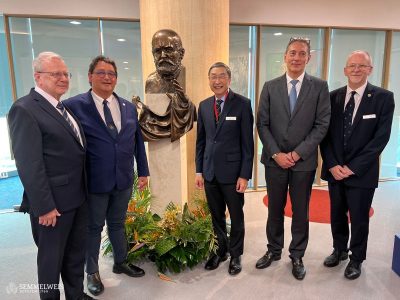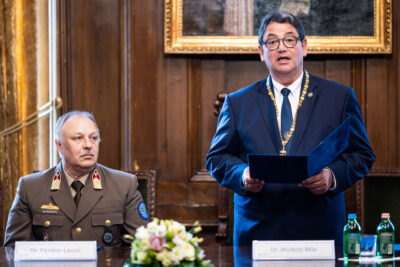 Semmelweis University, boasting a tradition spanning over 250 years, and the North Atlantic Treaty Organization (NATO), established in 1949, are related in several ways, perhaps the most important of which being that both were founded to protect people, emphasized Dr. Béla Merkely in his introductory address. The Hungarian Defence Forces are particularly active in the field of military medicine, and Hungary played a key role in establishing the NATO Centre of Excellence for Military Medicine in Budapest one and a half decades ago, in which Semmelweis University got involved in 2011 as the first civilian institution in Europe, the rector highlighted. The cooperation has been fruitful to date, reinforced and extended by the current agreement.
Semmelweis University, boasting a tradition spanning over 250 years, and the North Atlantic Treaty Organization (NATO), established in 1949, are related in several ways, perhaps the most important of which being that both were founded to protect people, emphasized Dr. Béla Merkely in his introductory address. The Hungarian Defence Forces are particularly active in the field of military medicine, and Hungary played a key role in establishing the NATO Centre of Excellence for Military Medicine in Budapest one and a half decades ago, in which Semmelweis University got involved in 2011 as the first civilian institution in Europe, the rector highlighted. The cooperation has been fruitful to date, reinforced and extended by the current agreement.
We intend to organize further joint training sessions, design new simulation models for civil and military training, while integrating each other’s expertise into our courses and providing access for our staff to these.
Semmelweis University has been offering educational simulation since 1995, and our world-class skill laboratories provide a high-quality training environment for NATO military doctors, the rector added. NATO MILMED COE’s Emergency Management of Battlefield Injuries course was recently hosted by the Department of Pathology, Forensic and Insurance Medicine, focusing on protocols and options for the care of battlefield injuries.
Throughout history, Semmelweis University and its students have always been engaged in representing the nation in conflict situations, like the revolutions of 1848 and 1956, various epidemics, the world wars, and the Don disaster. This Semmelweis sense of obligation has become part of the institution’s heritage and identity, Dr. Béla Merkely emphasized.
NATO MILMED COE is an international organization of twelve member states, which carries out educational, experience assessment, military defense (e.g. epidemiological), and doctrine development activities related to military medicine, as well as innovative projects to support NATO’s continuous renewal in the field of military medicine. Semmelweis University is an important partner of the center and has already accredited NATO MILMED COE training courses.
 Medical Colonel Dr. László Fazekas, Director of the NATO Centre of Excellence for Military Medicine, pointed out that Hungary had been a member of NATO for twenty-five years and the center in Budapest was established just over fifteen years ago. It boasts a significant accumulated expertise in combat care, in war conflicts of the Middle East and Afghanistan, which expertise might be relevant in today’s world of global challenges. The director went on to highlight that:
Medical Colonel Dr. László Fazekas, Director of the NATO Centre of Excellence for Military Medicine, pointed out that Hungary had been a member of NATO for twenty-five years and the center in Budapest was established just over fifteen years ago. It boasts a significant accumulated expertise in combat care, in war conflicts of the Middle East and Afghanistan, which expertise might be relevant in today’s world of global challenges. The director went on to highlight that:
In peacetime, we focus on training, and I believe that with today’s agreement we have taken an important step towards providing a high-level training opportunity within the walls of such a prestigious institution, not only for the 12 countries of the center, but also for representatives of all NATO member states.
Afterwards, Rector Dr. Béla Merkely and Medical Colonel Dr. László Fazekas, Director of NATO MILMED COE, signed and sealed the cooperation agreement in the presence of the university management and NATO MILMED COE representatives in the Senate Hall.
Róbert Tasnádi
Translation: Judit Szabados-Dőtsch
Photos by Bálint Barta – Semmelweis University
